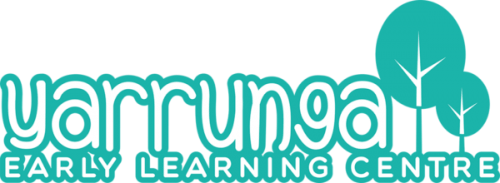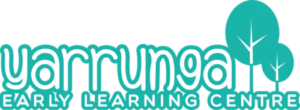Being, belonging and becoming – “A vision for children’s learning” from the Early Years Learning Framework forms the basis of our curriculum. With an in-depth knowledge of early child development educators support babies and very young children as they progress towards learning outcomes and achieve important milestones in a flexible, play based environment.
We believe that a sense of belonging promotes successful learning in early childhood. Educators in the Nursery/Toddler room recognise the importance of building secure attachments through individualised care routines and nurturing care practices in an environment that is responsive to each child’s interests, strengths and abilities. By forming strong, respectful, reciprocal relationships with families, we ensure a constant exchange of information complementing and assisting the positive and meaningful experiences reflecting home culture throughout the day.
Being recognises the significance of the here and now. It’s is a time of building and maintaining relationships and simply enjoying the fun of learning new routines and exploring the world. We promote lengthy periods of one to one time where babies and educators engage in uninterrupted play with lots of physical support as they pursue interests together, using a wide range of learning resources and teaching strategies.
Becoming reflects the process of emerging confidence and independence as babies learn and grow. We understand that learning occurs through opportunities to practice and repeat newly acquired skills with the support and guidance of trusted familiar educators. In the Nursery/Toddler room, we respond sensitively to babies developing understandings by using every day experiences such as nappy change and meal times to interact and reinforce achievements. Through lots of positive feedback, using simple language and gestures educators promote a sense of wellbeing and confidence in each child, encouraging further learning and development.
This is a busy time in your baby’s life as they participate in everyday life, they develop interests and construct their own identities and understanding of the world. Educators in the Nursery/Toddler room foster an environment with a holistic approach to learning. The five Learning Outcomes are designed to capture the integrated and complex learning and development of all children from birth.
We believe that each child is an individual with unique skills and attributes. Educators spend time playing and interacting with babies. We observe them in different contexts, which enables us to develop a specialised knowledge about each child’s strengths, interests, learning styles and development.
Our team acknowledges that children learn best through play. Each child has an individual Reflective Learning Journal containing a collection of photos, work samples, letters to children, observations and documented learning stories reflecting their development. We also include individual plans and extend ideas along with input and feedback from families. Data collection is also documented in the children’s individual Reflective Journals. These are displayed and available for viewing at any time and are taken home at the end of the year.
We know that you as a parent are an expert on your child, we will seek out and value your opinions and input into our Curriculum and Planning Cycles.
A walk through a day in the nursery/toddler room…
Daily welcome
Each day begins with a warm and friendly greeting between educators, children and their families. We know that every baby is a special and unique individual, and begin by getting to know your child’s routines. How often and what they like to eat, when do they sleep and play? This information is used to implement an individual plan reflecting home practices which promote continuity of care and learning whilst at Yarrunga. Daily routines are potential learning moments as thoughtful and caring educators interact by talking, singing and playing with your child.
Meal and snack times
Nutritious meals and snacks are provided throughout the day, and are responsive to the individual dietary requirements and schedules of each child. Meal times are a time for enjoying social interactions, and developing independence and self-help skills. Bottle-feeding is regarded as a special time to build trust and attachments with primary educators through nurturing practices. We encourage breast feeding and provide a comfortable space where mothers and their babies can relax and enjoy this experience.
Sleep and rest times
Sleep times are also structured to meet your babies individual needs, with each child having their own cot (or stretcher for older toddlers) in the same place each day, promoting a sense of belonging and identity.
Learning through play
Throughout the day, babies and toddlers are busy exploring, learning and discovering the world around them. Our curriculum provides a balance of experiences and learning opportunities promoting natural inquisitiveness. We believe that caring relationships are crucial in this time of rapid development and create a safe, interesting environment where they have opportunities to explore using their senses: touching and manipulating objects, hearing different sounds and looking at interesting things that are going on around them. We promote “tummy time” and provide soft mats and cushions for your baby to lay or sit on with educators responding to their interests at their level.
Through language, music, movement and creative art experiences babies and toddlers playfully interact with educators and their environment. We model and use verbal and non-verbal language as we engage in daily routines and play, and share favourite stories and picture books. Babies and toddlers interact with books differently, and even very young babies engage with books in remarkable ways. We provide a selection and reading resources carefully matched to the interest and developmental levels of each child. Music is incorporated into daily timetable through planned and spontaneous opportunities including simple rhymes, finger plays and action songs, with the inclusion of resources such as Cds, puppets, instruments and movement props fostering balance and coordination, and creative movement. Learning through “messy” play provides opportunities to explore concepts and express creative ideas. Provisions including dough, clay, crayons, paint and paste are available throughout the day.
Pretend play is a means by which young children begin to make sense of and understand the world around them. Both indoor and outdoor play areas include simple props relating to everyday experiences where familiar roles can be re-enacted in a social setting.
Small group times
Throughout the day educators play with small groups of children where they engage in a variety of experiences planned specifically around children’s interests and development. These small groups are designed to complement and scaffold learning in a social environment where children and educators learn from each other through modelling and imitation.
Outdoor play
As babies grow and develop, they need safe spaces to explore while they practice sitting, crawling, standing, pushing, pulling, walking and climbing. We have our own outdoor play area including a sandpit, textured paths, a soft tan bark area and planting boxes. Children’s development is enhanced through their play with natural materials and we promote opportunities for gardening, and exploring soil, water and sand.
The Nursery/Toddler room also takes part in our Sustainability program – including Stephanie Alexander Garden Program. The children are included in such activities as earth hour, weeding, watering, picking vegetables, recycling and cooking.
Community involvement
We get “Out and about” in our local community using our Quad Pram, going for walks in the local area, taking part in Clean up Australia and visiting Borella House.

